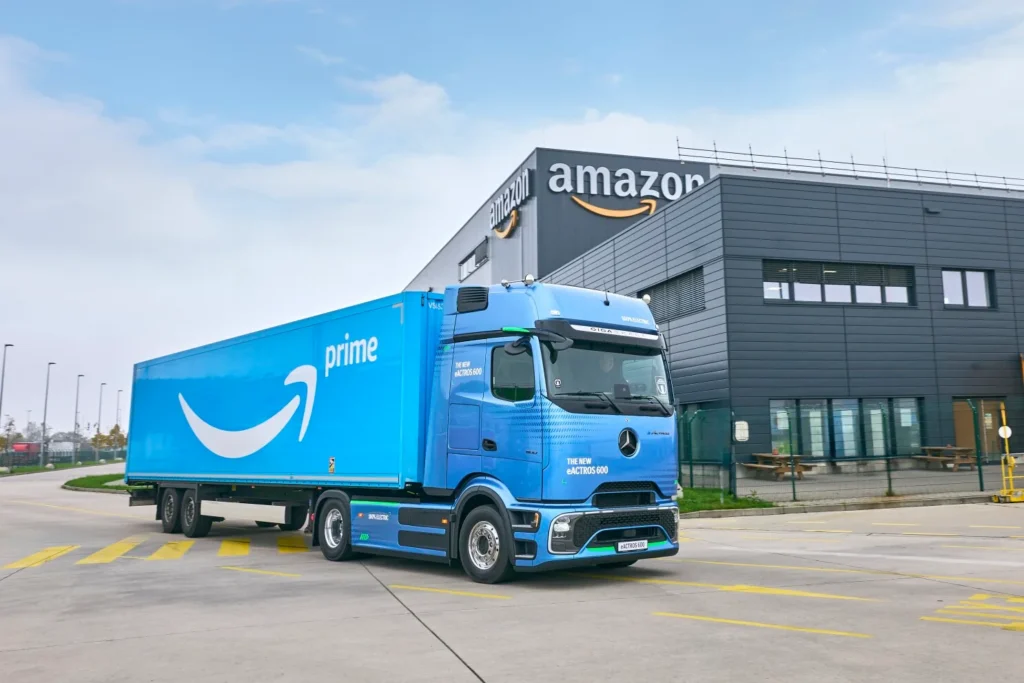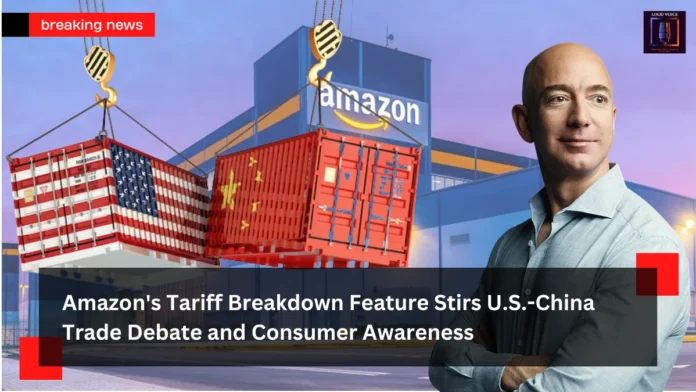Amazon’s Tariff Breakdown: Key Takeaways
- Amazon’s new pricing disclosure initiative has triggered political backlash, with White House officials criticizing the move as politically motivated. This controversy reflects the growing sensitivity around trade-related disclosures in corporate settings.
- The planned feature will show consumers how tariffs directly affect product prices, providing insight into how international trade policies shape everyday costs on goods ranging from electronics to household items.
- Due to concerns about consumer backlash over tariff awareness, many third-party merchants are reevaluating their pricing and participation, which could cause Amazon’s decision to disrupt Prime Day sales.
- This incident exemplifies the growing tension between corporate transparency and geopolitical strategy, revealing the fine line businesses must walk between customer advocacy and political neutrality.
Introduction: A Bold Step Toward Transparency or Political Provocation?
Amazon’s recent announcement that it will display the breakdown of tariffs in product prices has stirred a hornet’s nest in Washington. Designed to provide consumers with clarity about the costs built into what they buy, the initiative has instead been criticized as politically motivated. The White House has gone so far as to label it a “hostile and political act,” arguing that it could undermine ongoing trade negotiations and sway public sentiment.
This clash is taking place amid a heated U.S.-China trade environment, where tariffs have become both economic tools and political symbols. While Amazon frames its move as an effort to increase transparency, its critics view it as a strategic decision with far-reaching implications.
The Core of the Controversy: Corporate Disclosure Meets Political Sensitivities
At the heart of the dispute is Amazon’s attempt to disclose how much of a product’s final price is due to tariffs—fees often levied on imported goods, especially from China. These tariffs, introduced largely during the previous administration, were aimed at curbing trade imbalances and supporting American manufacturing.
By itemizing these charges, Amazon intends to highlight the financial burden passed down to consumers. However, this transparency has not been well received by some federal officials. According to sources familiar with the matter, White House aides privately accused Amazon of overstepping into the realm of political messaging, particularly as the feature rollout may coincide with broader trade negotiations or the upcoming election season.
This reaction raises important questions: Should corporations avoid revealing the real-world impact of government policies? Or do they have a responsibility to keep consumers informed—even if it stirs political unrest?
Implications for E-Commerce, Sellers, and Consumers
For the millions of sellers operating on Amazon’s marketplace, the announcement introduces a layer of uncertainty. Sellers who import goods from overseas, particularly China, are already facing thinner margins due to elevated tariffs. Many are now concerned about a reaction from price-conscious customers as Amazon plans to openly show how tariffs drive up pricing.

This comes at a particularly delicate time: Amazon’s annual Prime Day is one of the largest global shopping events, and any disruption could affect billions in sales. Sellers are reportedly reconsidering participation, worried that consumers will react negatively to visibly inflated prices—even if those prices reflect government-imposed tariffs, not retailer markup.
Moreover, this situation forces sellers to rethink sourcing and pricing strategies. Alternatives may include shifting supply chains to countries outside China, eating into profits to absorb some tariff costs, or even pausing listings during high-traffic events.
For consumers, the change could bring welcome clarity. Instead of facing vague price hikes, buyers would understand precisely how global trade policies affect their wallet. This transparency may empower more informed purchasing decisions—but it could also lead to politicized interpretations, especially if buyers blame specific administrations or policies for higher costs.
Broader Economic Context: Tariffs, Trade Wars, and Public Impact
The U.S.-China trade war, which began in 2018, saw hundreds of billions of dollars’ worth of tariffs imposed on each other’s exports. The stated objective was to address long-standing concerns over intellectual property theft, trade imbalances, and forced technology transfers. While tariffs were meant to pressure China into policy changes, the burden of those costs often fell on U.S. businesses and consumers.
Amazon’s transparency initiative revives this conversation. By pointing out how tariffs shape prices, the company is reminding the public that trade wars have local consequences. The average American may now see that the extra $10 or $20 they’re paying on an item isn’t due to greedy retailers, but rather international economic policy.
This dynamic adds fuel to ongoing policy debates: Should tariffs remain in place as leverage against China, or be removed to ease pressure on American consumers and small businesses? And how should companies like Amazon respond to policies that directly affect their operations and pricing?
Corporate Responsibility vs. Political Neutrality: Walking a Tightrope
This controversy places Amazon at the intersection of corporate social responsibility and political neutrality. On one hand, the company argues it is fulfilling its duty to customers by disclosing meaningful price information. On the other, it risks being seen as meddling in trade politics or subtly criticizing government policy.
This is not the first time a major tech or retail firm has faced this dilemma. From climate change disclosures to tax reporting and AI ethics, corporations are increasingly caught between consumer expectations and government scrutiny. The balancing act is delicate: Too little transparency, and you risk losing consumer trust; too much, and you may provoke political retaliation.
For Amazon, the challenge is acute. As one of the world’s largest online retailers, it not only influences consumer behavior but also holds sway over global supply chains and public opinion. Its decisions set precedents that smaller players often follow, meaning this pricing change could ripple across the e-commerce landscape.
Conclusion: A Turning Point in Trade Transparency and Consumer Awareness
Amazon’s decision to disclose tariff impacts on pricing is more than a technical update—it’s a statement about the future of transparent commerce in a globalized world. By surfacing the hidden layers of product pricing, the company is positioning itself as a consumer advocate, even at the risk of political backlash.
As global supply chains remain volatile and geopolitical tensions escalate, corporate transparency will likely become a central issue, not just in trade, but across sustainability, labor rights, and taxation. Amazon’s move may mark the beginning of a new era, where companies act as intermediaries between policy and the people affected by it.
Whether consumers embrace this clarity or policymakers push back harder remains to be seen. But one thing is clear: the way we talk about prices—and who’s responsible for them—is changing.


